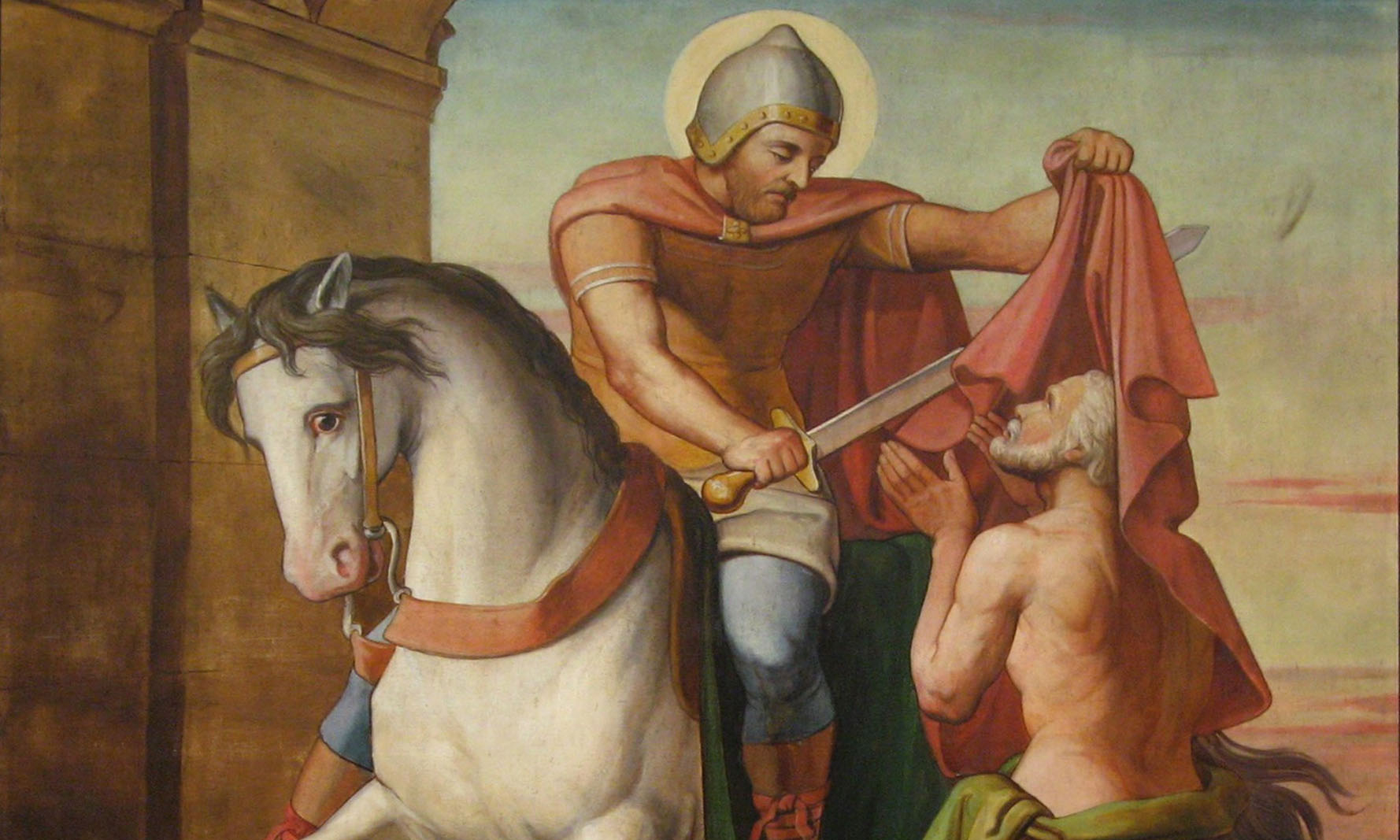Today we celebrate St. Martin of Tours, a saint marked by and remembered for his mercy. We can hear him asking us this question: “Do you give alms? And tell me, when you give alms, do you look into the eyes of the man or woman to whom you give alms?”
This question has haunted me since I first heard it. You too may recognize it. Pope Francis asked it in May 2013 during an audience with lay movements, expressing his desire that the Church be “poor and for the poor.” Over and over, we hear the Pope reminding the Church to turn her gaze to those who are most in need. These words ought to inspire within us a holy restlessness for justice and for mercy. We ought to behold the face of the poor and to become for them faces of mercy.
The Pope’s message is profoundly rooted in the Word of God. Let us open, for example, to the fourth chapter of the book of Tobit. There we hear Tobit, himself an exemplar of mercy, teaching his son, Tobias, what he must do to be righteous: “Do not turn your face away from any poor man, and the face of God will not be turned away from you.” This son of Israel understood the Lord’s predilection for the poor. He knew that God desires “mercy, not sacrifice” (Hos 6:6, Mt 9:13). Tobit continues, “For charity delivers from death and keeps you from entering the darkness; and for all who practice it charity is an excellent offering in the presence of the Most High.” The People of God, old and new, are called to participate in God’s mercy. We can learn much from the Old Testament (beyond Tobit, the Psalms and the Prophets come to mind) about how to walk on this path. But we Christians have been given an even greater example.
Jesus Christ, the Word made flesh, radically identifies Himself with the poorest of the poor. One need only remember the words of Our Lord in chapter 25 of St. Matthew’s Gospel—“as you did it to one of the least of these my brethren, you did it to me.” Every time a Christian has mercy upon the hungry, the thirsty, the homeless, the imprisoned, the addicted, the hopeless, the unpleasant, the sinner, and anyone in any suffering whatsoever, he “has mercy” on Christ. Since Jesus is so united to the poor, when we turn our faces from them, it is not God who turns away from us in punishment, but we who have turned from Him and who no longer see His mercy.
So in these last days of the Jubilee of Mercy, let us make a resolution for the rest of our lives: that we may more anxiously seek Jesus, the Face of the Father’s mercy, where He is hidden – in the sacrament of His Body and Blood, surely, but also in His poor, naked, crucified flesh manifest in those poor people all around us who suffer most.
✠
Image: Louis Anselme Longa, La Charité de Saint-Martin







